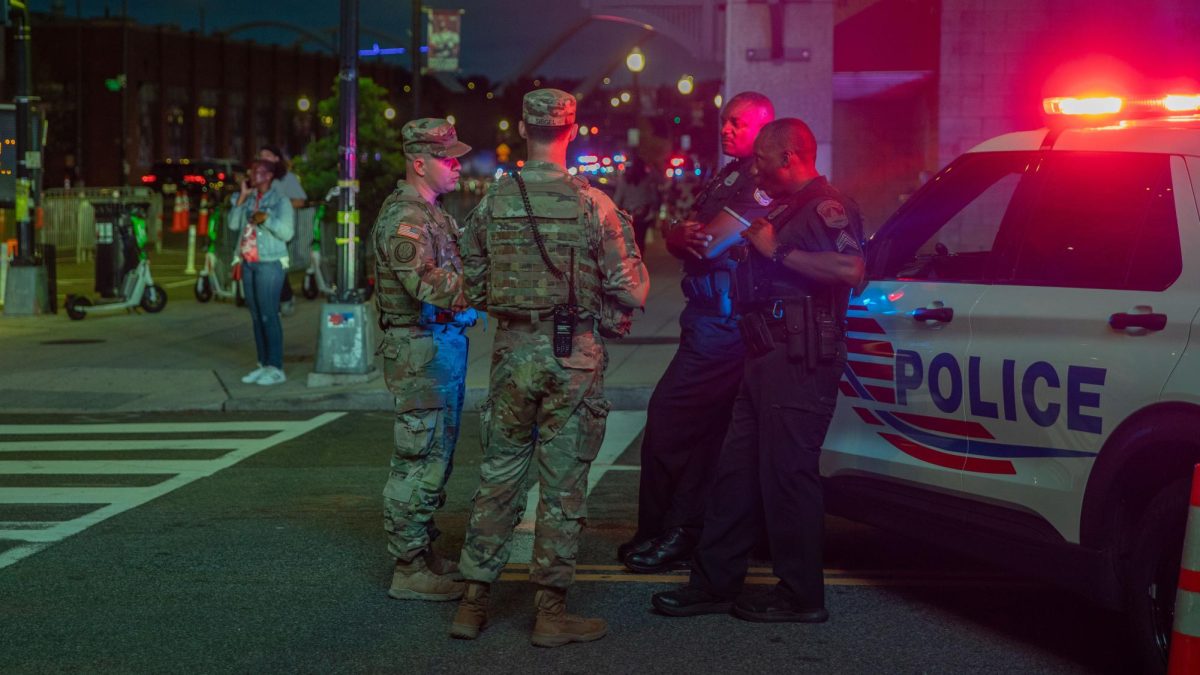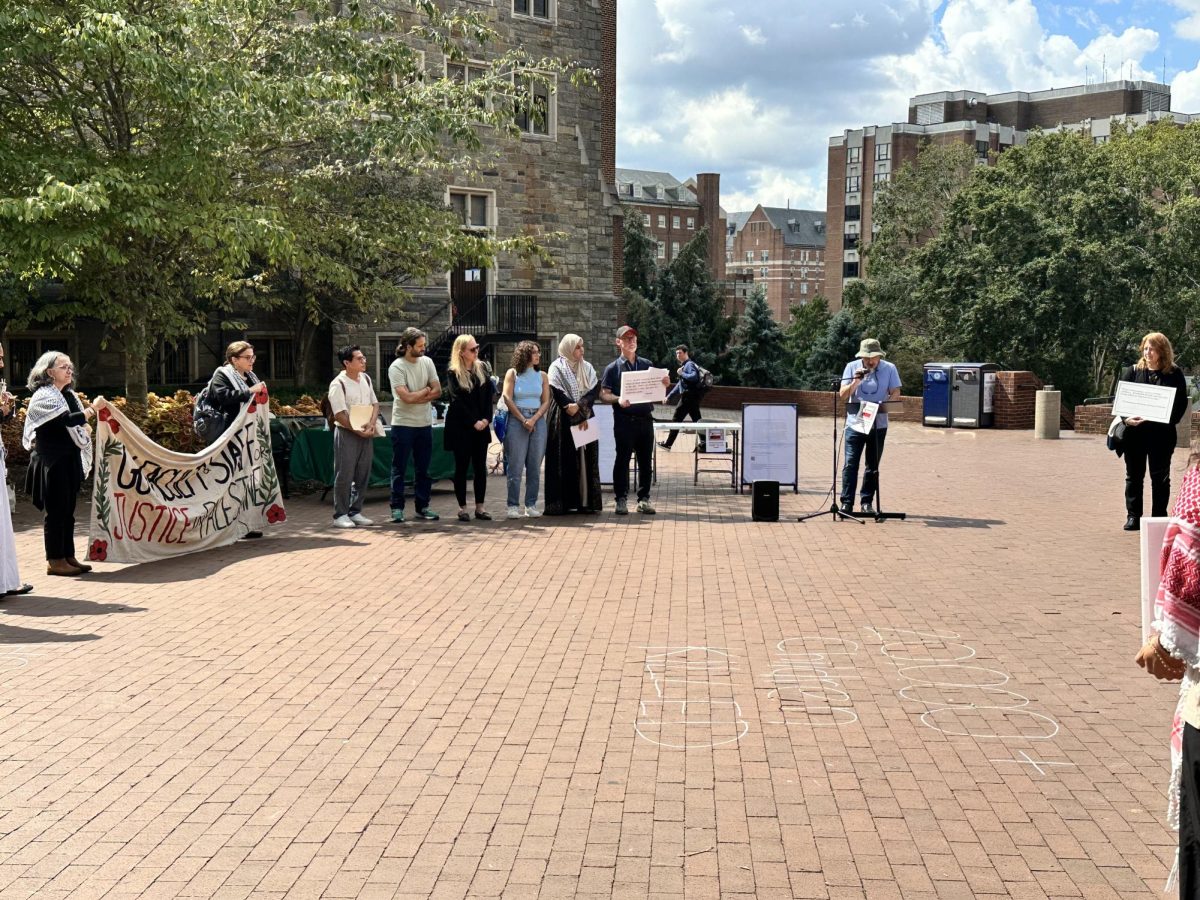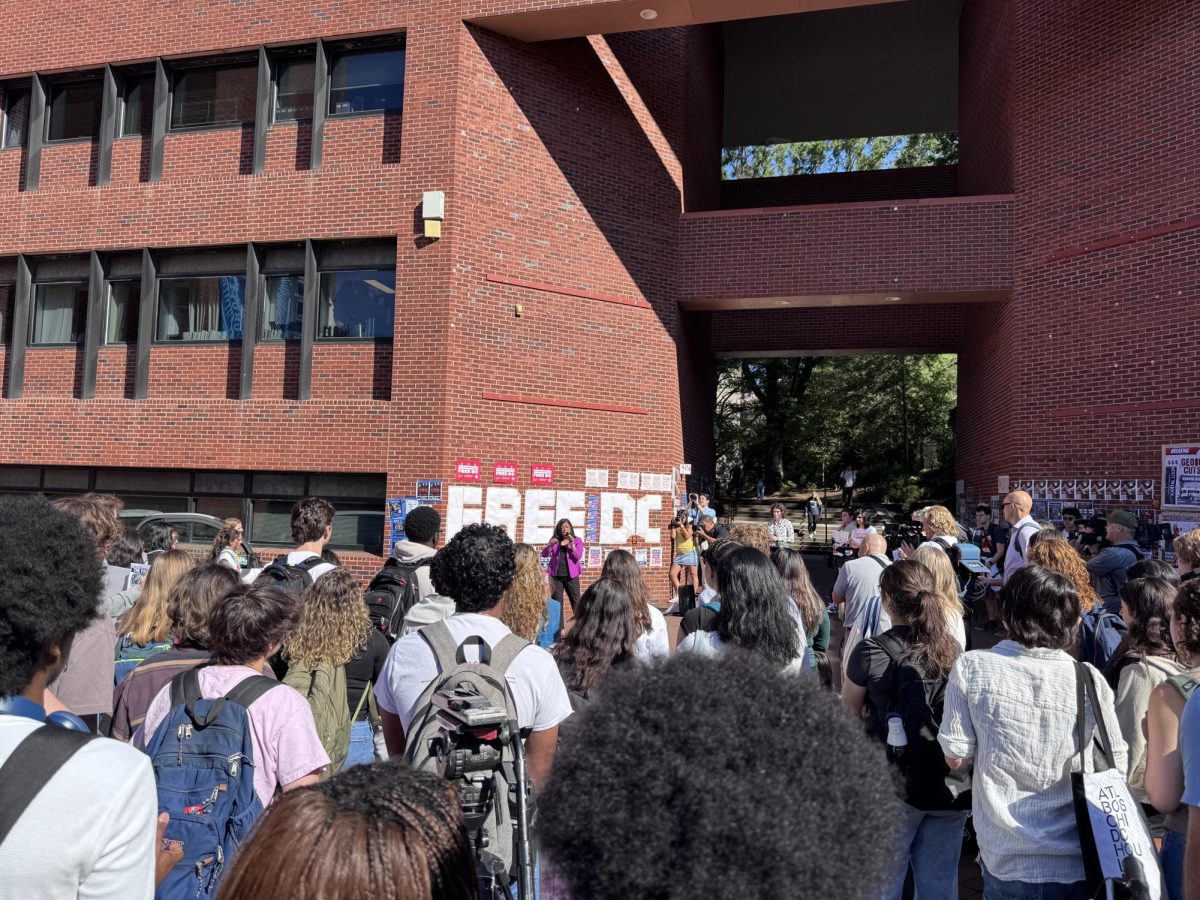Georgetown University Law Center (GULC) Dean William Treanor rejected warnings from Washington, D.C.’s top federal prosecutor that his office will stop hiring GULC students unless the school ceases its diversity, equity and inclusion (DEI) curriculum in a March 6 letter.
Ed Martin, the interim U.S. Attorney for the District of Columbia, sent a letter to Treanor on March 3 describing Georgetown’s DEI curriculum as “unacceptable” and advising him that his office, the largest federal attorney’s office in the U.S. Department of Justice (DOJ), would not consider GULC students for professional opportunities while the policy stood — raising concerns among Georgetown students and faculty. In his response, Treanor emphasized how First Amendment rights to freedom of speech and religion prohibit the government from controlling Georgetown’s curriculum.
Treanor said the First Amendment protects Georgetown’s professors, curricula and educational mission.
“Your letter informs me that your office will deny our students and graduates government employment opportunities until you, as Interim United States Attorney for the District of Columbia, approve of our curriculum,” Treanor wrote in the letter. “Given the First Amendment’s protection of a university’s freedom to determine its own curriculum and how to deliver it, the constitutional violation behind this threat is clear, as is the attack on the University’s mission as a Jesuit and Catholic institution.”

While the Department of Education can dictate policy initiatives, the federal government cannot dictate the curriculum of private universities. The federal government can, however, threaten to pull funding for specific programs if an institution is noncompliant with federal law. Martin’s letter comes after President Trump signed a Jan. 20 executive order to end DEI programs, policies and activities across the federal government.
A university spokesperson said nothing within GULC’s programming violates the law or is preferential to certain identities that Martin alleged was discriminatory.
“Georgetown complies with federal and local regulations, and programs and activities at Georgetown Law are open to all students regardless of race, national origin, sex, religion or any other characteristic protected under University policy, consistent with applicable law,” the spokesperson wrote to The Hoya.
Though GULC has a non-curricular Office of Equity & Inclusion (OEI) dedicated to creating an inclusive campus through programming and advisory services, GULC Chief Diversity Officer Anjali Patel said the OEI neither influences GULC’s classroom curriculum nor imposes specific views on students.
“The Office of Equity & Inclusion (OEI) at the Law Center is strictly advisory, not compliance-based,” Patel wrote to The Hoya. “We do not enforce policies, dictate speech or engage in admissions or hiring decisions. Instead, we provide guidance, promote dialogue and support students and faculty in navigating differences with professionalism and intellectual rigor.”
Georgetown Law student leaders condemned Martin’s letters and lauded Treanor’s response.
Max Siegel II (LAW ’25), president of the Student Bar Association (SBA), GULC’s student government, said he appreciated Treanor’s clear support of academic freedom.
“Reading the letter was definitely reassuring, and I really appreciate its directness, especially with affirming the university support for both students and faculty in shaping their own academic paths and what they would like to teach,” Siegel told The Hoya.
Siegel added that he is unsure what DEI-related curriculum the letter referred to.
“DEI is kind of being thrown around the same way as ‘woke’ has been, where there’s no real definition,” Siegel added.
The GU Law Coalition for Justice, an alliance of progressive Georgetown student groups, said they support Treanor’s defense of GULC and condemned Martin’s actions in a March 7 statement.
“Not only is the threat against Georgetown Law unconstitutional, but Interim U.S. Attorney Martin’s demand to eliminate all diversity, equity and inclusion from our institution is absurd, nonsensical and unimplementable,” the coalition’s statement reads. “This is White Supremacy in action.”
Coalition for Justice co-founder Kylie Swinmurn (LAW ’26), said the group published the letter to draw attention to Martin’s warnings, which she said were unconstitutional.
“It’s important to name things as they are,” Swinmurn told The Hoya. “I think often in an effort to sound professional or acceptable, we tend to dull our words a lot, but the actions aren’t dulled. We can dull the word tyranny as much as we can, but that’s still what’s happening.”
In addition to raising concerns about academic freedom, the letter increased many students’ anxieties over their professional futures. The Trump administration has worked to downsize the federal workforce, including by imposing a federal hiring freeze which led to internship and job cancellations.
Greydon Tomkowitz (LAW ’25), a former intern at the D.C. U.S. Attorney’s Office (USAO) said he and other students are concerned about not being hired at the office following the letter.
“I had an incredible time working for the USAO in the past, and it is my goal to return in the future to serve my community in the administration of justice through criminal prosecution,” Tomkowitz told The Hoya. “This policy definitely puts those hopes at risk, and I’m not the only one to express those concerns.”
Siegel said many students have seen stress over future opportunities become a defining feature of the semester.
“We’ve had a lot of students lose DOJ jobs, other federal positions post-grad, which completely has derailed their post-grad plans, so it’s been a tough semester already dealing with this,” Siegel said. “This letter kind of felt like it was adding more confusion and stress.”
The university spokesperson said GULC is working to expand internship and career opportunities for students in response to federal job cuts.
“Our career advisors have mobilized and hired extra staff to reach out and provide individualized support and career counseling to students who may have been affected by the shifting landscape for federal employment,” the spokesperson wrote. “We’ve expanded our outreach to public sector organizations across the country to seek out new job opportunities.”
Siegel said that despite Martin’s criticism of GULC’s curriculum, the school’s reputation and academic record will continue to speak for itself.
“It’s frustrating to see an attack on the institution as a whole, but I don’t think it changes the fact that we have some of the most qualified and thoughtful professors and students in legal academia,” Siegel said. “I don’t think that can be pulled down by this letter that we received.”








